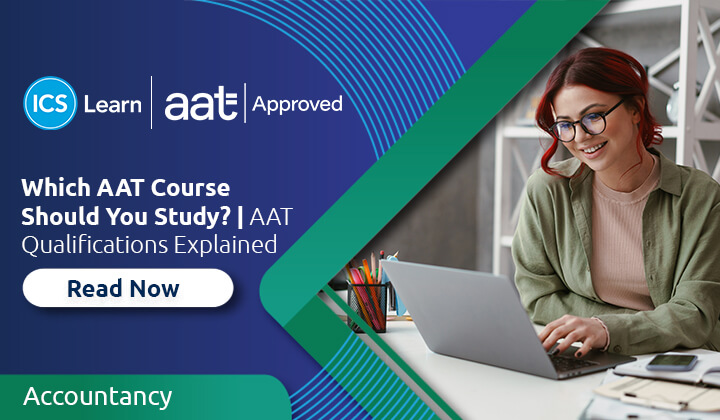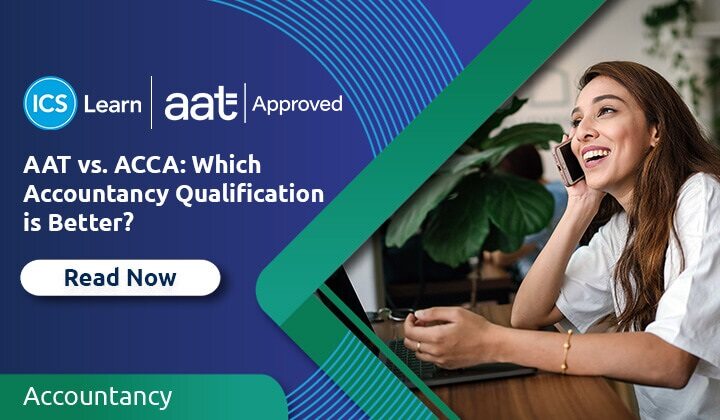Accountancy

Bookkeeping vs. Accounting: What’s the Difference?

01 March 2023 - 5 min read
Bookkeeping and accounting are two terms that are often used interchangeably among those less savvy in the finance world, however, while each falls under the finance umbrella and have some overlapping elements, they also have some stark differences that set them apart from one another.
So, if you’re currently struggling between choosing a career in Bookkeeping or Accounting and are in need of some clarification, below we’re outlined the difference between the two so that you can make an informed decision.

What is Bookkeeping?
Invaluable to any business, bookkeeping is the process of documenting a business’ daily transactions and recording them in the company’s financial records.
Depending on the specific line of business, however, bookkeeping tasks may vary from one organisation to another. For instance, as a bookkeeper you will likely be responsible for some - if not all - of the following tasks:
- Managing and recording all financial transactions and balancing the books
- Cross-referencing the books vs. bank statements and other source documents to ensure accuracy
- Putting together monthly financial reports and summarising the business’ financial position
- Preparing year-end tax returns
- Sending and receiving invoices and making sure they’re accurate (i.e. accounts receivable and accounts payable), and
- Calculating payroll and deductions

What is Accounting?
Imperative to a successful (and ethically sound) business, accounting is the process of analysing financial information - often prepared by bookkeepers - to create statements, financial metrics, and reports that provide insight into a company’s operations. This insight also allows opportunities for further insight into what financial decisions need to be made to keep a company afloat and thriving.
Some typical day-to-day accounting tasks will likely include:
- Monitoring company spending and budgets
- Preparing accounts, tax returns, and other financial statements
- Auditing and analysing financial data and performance
- Analysing costs of operation and calculating performance metrics
- Financial forecasting and risk analysis
- Guiding corporate in making informed financial decisions
Bookkeeping vs. Accounting: What’s the Difference?
To put it plainly, while bookkeeping involves the managing and recording of financial transactions and data, accounting involves a wider range of tasks that focus on analysing, classifying, and interpreting this information and turning it into tangible data to report on.
Bookkeeping lays the foundation for accounting in that the information provided by bookkeepers must be consistent and accurate so that accountants can take that information at face value, subsequently assisting corporate and small business owners in making the best financial decisions for the future or their organisations.

Why should I become a Bookkeeper?
If you’re not entirely sure whether a career in finance is for you, dipping your toe into bookkeeping is a great way to gauge whether you’re on the right track. Not only can you become qualified quickly and flexibly, but once qualified, you can become your own boss - working when and as you’d like - how great is that?
To add, bookkeeping offers great job security because no matter the industry, bookkeepers are essential to any organisation running smoothly.
In fact, as the economy grows, so will the opportunities for those in this career path. According to the U.S. Bureau of Labour Statistics, bookkeeping and accounting jobs are practiced to grow by 4% between 2019 and 2029.
Where to Start
When it comes to bookkeeping or accounting, if you’re looking to enhance your knowledge and skills by enrolling on a professional qualification, then we always recommend first taking a look at the courses offered by the Association of Accounting Technicians (AAT).
Not only do AAT have a range of prestigious qualifications for any stage in your finance career, but their qualifications are recognised and respected by employers worldwide, demonstrating that you have financial competence and ethical conduct of the highest standards.
If you’re just starting out in bookkeeping or want to formalise your essential skills experience, the AAT Level 2 Certificate in Bookkeeping is the perfect place to start. This course will help you master bookkeeping transactions and controls, and provide opportunities to increase your earning potential and apply to work in prime bookkeeping roles such as Accounts Administrator or Accounts Manager.
Alternatively, if you really want to kickstart and boost your bookkeeping career, you can enrol on the AAT Level 2 & 3 Combined Course in Bookkeeping.
As the name suggests, you’ll study two courses at once - the AAT Level 2 Certificate and the Level 3 Certificate, which upon completion, will make you a fully qualified bookkeeper!

Why should I become an Accountant?
Being that bookkeeping only covers one area of accounting, if you’re looking for a career that focuses on the bigger financial picture, qualifies you for more job opportunities, and thus, more cash flow, then becoming an Accountant might be the ideal choice for you!
Similar to starting a career in bookkeeping, you don’t actually need a degree to begin a fulfilling career in accounting - and you can work in almost any industry. This means you’ll be highly employable while avoiding any hefty uni debt.
Let us also not forget to mention that you’ll be well paid from the get-go, with the average salary of accountants in the UK being upwards of £23,000.
If that’s not enough to convince you, we should add that as an accountant you’ll also have ample opportunities to work flexibly from anywhere in the world, with the chance to be choosy about where and what industry you work in so you can make certain you choose a job in an area you enjoy.
Where to Start
Since accounting is naturally more analytical and complex, accountants typically require more education and training than bookkeepers.
If you’re just starting out on your accounting career journey, however, the AAT Level 2 Certificate in Accounting is ideal if you have zero to minimal accounting experience and can lead you into many sought-after entry-level finance roles such as an Accounts Assistant, Accounts Administrator, or an Accounts Payable Clerk.
Alternatively, if you’re looking to save some money and get ahead at the same time, the AAT Level 2 & 3 Certificate and Diploma in Accounting is an ideal choice.
This combined course will give you the fundamental knowledge and skills you need to launch your accountancy career, and is even suitable if you already have some accounting experience but want to master essential practical finance skills (such as double-entry bookkeeping).
If you already have a Level 3 qualification however, and are looking to further progress in your career, then the AAT Level 4 Diploma in Professional Accounting is the way to go.
The Level 4 course is ideal if you have significant practical accounting education and experience and want to progress into senior roles such as Finance Officer.
Regardless of which career path you choose, bookkeepers and accountants are in high demand - a trend that won’t be changing anytime soon.
We hope this blog gives you confidence that whatever path you choose, you’re sure to be busy, successful, and fulfilled in your role.
Interested in kickstarting or advancing your finance career? Enrol on a 100% online professional AAT qualification with us and get started today.
Download Your Free AAT Course Guide
Get information on our AAT courses
Share this post
Which AAT Course Should You Study? AAT Qualifications Explained
AAT qualifications are a great way to get into accountancy or build on your existing skills and knowledge, but how do you know which level is right for you?
9 Jobs You Can Get With an AAT Qualification
AAT qualifications are an important accountancy qualification – but what can they lead to? Here are 9 jobs you can get with an AAT qualification.
AAT vs. ACCA: Which Accountancy Qualification is Better?
We compare two of the most popular accountancy qualification providers to assist you in kickstarting or advancing your finance career.















